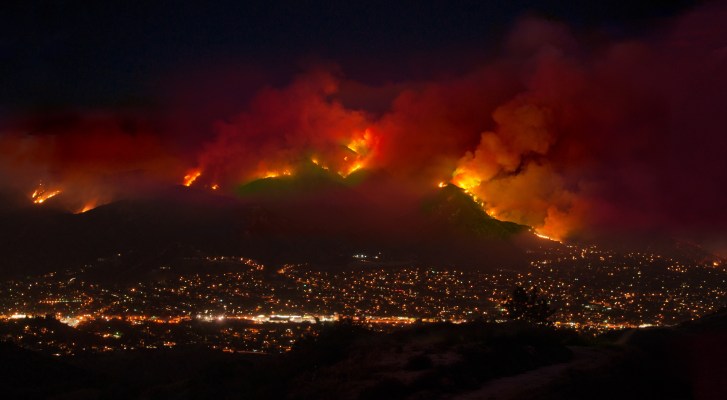Products You May Like
A major UN scientific report has concluded that human activity is changing the climate at an unprecedented rate. The report has been describe as a “code red for humanity” by its authors.
The UN’s Intergovernmental Panel on Climate Change (IPCC) is stern and blunt in its conclusions: “It is unequivocal that human influence has warmed the atmosphere, oceans, and land,” it says.
The IPCC — a grouping of scientists whose findings are endorsed by the world’s governments — warns of increasingly extreme heatwaves, droughts, and flooding and a key temperature limit being broken inside the next decade.
This “means that the world will hit one-and-a-half degrees warming much earlier than expected, possibly the middle of 2034” says the report.
The IPCC says going past 1.5 C will create more intense and more frequent heat waves.
Prof. Ed Hawkins, from the University of Reading, U.K., one of the report’s authors said: “It is a statement of fact, we cannot be any more certain; it is unequivocal and indisputable that humans are warming the planet.”
However, the scientists say a catastrophe can be avoided if the world acts fast, and, with deep cuts to the emissions of greenhouse gases, could stabilize rising temperatures.
And scientists are hopeful that global emissions can be cut by 2030 and reach net zero by the middle of this century.
The report is the first major review by the IPCC since 2013 and comes less than three months before the COP26 climate summit in Glasgow.
Read more of TechCrunch’s most recent climate and sustainability coverage:
IPCC report key points
- 1.5 C will be reached by 2040 in all scenarios unless emissions aren’t slashed in the next few years.
- Keeping to 1.5 C will require “immediate, rapid and large-scale reductions” in emissions and slower action leads to 2 C and more suffering for all life on Earth.
- Human influence is “very likely” (90%) the main driver of the global retreat of glaciers since the 1990s and the decrease in Arctic sea ice.
- Heat waves have become more frequent and more intense since the 1950s, while cold events have become less frequent and less severe.
- There will be likely increases in “fire weather” in many countries.
- Drought is increasing in more than 90% of regions.
- Global surface temperature was 1.09 C higher in the decade between 2011-2020 than between 1850-1900.
- The past five years have been the hottest on record since 1850.
- The recent rate of sea-level rise has nearly tripled compared with 1901-1971.
- A rise of around 2 meters in sea levels by 2100 cannot be ruled out — and neither can a 5-meter rise by 2150, threatening millions of people in coastal areas.
- Extreme sea-level events that occurred once a century are projected to occur at least annually.
Under all the emissions scenarios considered in the report, all targets for reductions targets will be broken this century unless huge cuts in carbon emissions take place.
Solutions proposed by the scientists include using clean technology, carbon capture and storage, or planting trees.
Another co-author, Prof. Piers Forster from the University of Leeds, U.K., was quoted as saying: “If we are able to achieve net-zero, we hopefully won’t get any further temperature increase; and if we are able to achieve net-zero greenhouse gases, we should eventually be able to reverse some of that temperature increase and get some cooling.”
The IPCC report found that 2,400 billion tonnes of CO2 have been emitted by humanity since 1850, and that we can only leak another 400 billion tonnes to have a 66% chance of keeping to 1.5 C.
This means the planet has spent 86% of its carbon “budget” already.
Furthermore, no one is safe from the effects of climate change.
“We can no longer assume that citizens of more affluent and secure countries like Canada, Germany, Japan, and the U.S. will be able to ride out the worst excesses of a rapidly destabilizing climate,” says Prof. Katharine Hayhoe, chief scientist at The Nature Conservancy. “It’s clear we’re all in the same boat — facing a challenge that will affect every one of us within our lifetimes.”
